consciousness

Dive into the fascinating world of neurosurgery with Dr. Theodore Schwartz. Explore the intricacies of brain surgery, from historical breakthroughs to cutting-edge techniques. Uncover famous cases, sports-related brain injuries, and ponder philosophical questions about consciousness and free will. A mind-bending journey through one of medicine’s most challenging and lifesaving specialties.

Shermer and Goertzel explore various topics related to AI, including the nature of intelligence, AGI, the alignment problem, consciousness, and sentience. They consider AI dystopia, utopia, and protopia, along with ethical and legal issues, such as AI values and universal basic income (UBI). Other discussions involve mind uploading, self-driving cars, robots like Sophia, and whether AI can solve political and economic problems or even achieve consciousness.

Shermer and Junger discuss: his near-death experience and his curent beliefs • NDEs and OBEs • hallucinations • altered states of consciousness • sensed presence effect • sleep paralysis • why there is no “proof” of an afterlife • living forever • belief in life after death • empirical truths vs. mythic truths • longevity and how to live longer.

Russell T. Warne discusses lessons learned from artificial intelligence regarding the human mind, including discussions on sentience, errors made by AI programs, creativity, and the propensity for AI programs to fabricate information.

hermer and Koch discuss: “subjective experience” • the author’s near-death experience changed him • the difficulties of materialism/physicalism • a fundamental theory of consciousness that explains subjective experiences in objective measures • designing a “consciousness detector” for unresponsive patients • why magic mushrooms and Ayahuasca are of so fascinating to neuroscientists • how our minds are shaped by our beliefs, prior experiences, and intentions • insights crucial to those suffering from anxiety, low self-esteem, post-traumatic stress, and depression. • the…
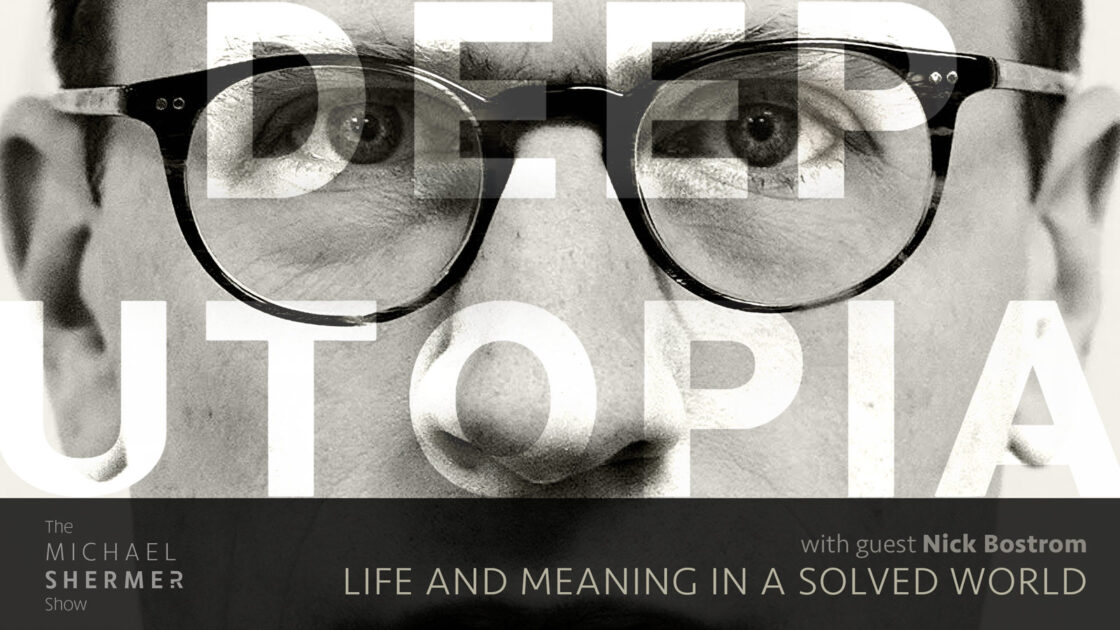
Bostrom and Shermer discuss: An AI Utopia and Protopia • Trekonomics, post-scarcity economics • the hedonic treadmill and positional wealth values • colonizing the galaxy • The Fermi paradox: Where is everyone? • mind uploading and immortality • Google’s Gemini AI debacle • LLMs, ChatGPT, and beyond • How would we know if an AI system was sentient?
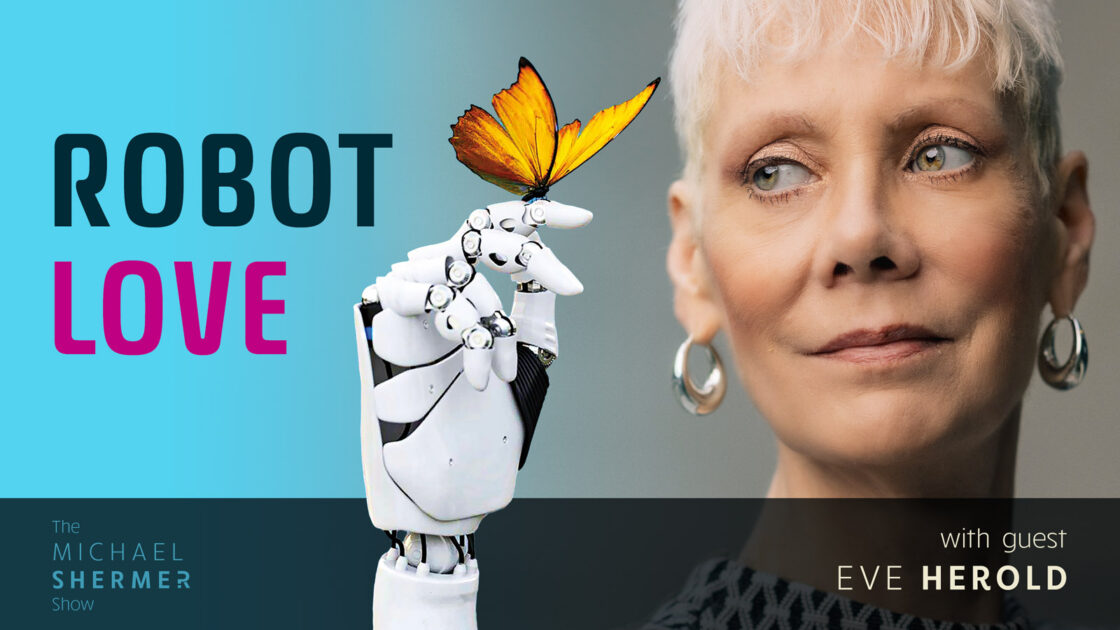
Shermer and Herold discuss: social robots, sex robots, robot nannies, robot therapists • flying cars, jetpacks and The Jetsons • Masahiro Mori • emotions, animism, mind • emotional intelligence • artificial intelligence • large language lodels • ChatGPT, GPT-4, GPT-5 and beyond • the alignment problem • robopocalypse • robo soldiers • robot sentience • autonomous vehicles • AI value systems, and their legal and ethical status.
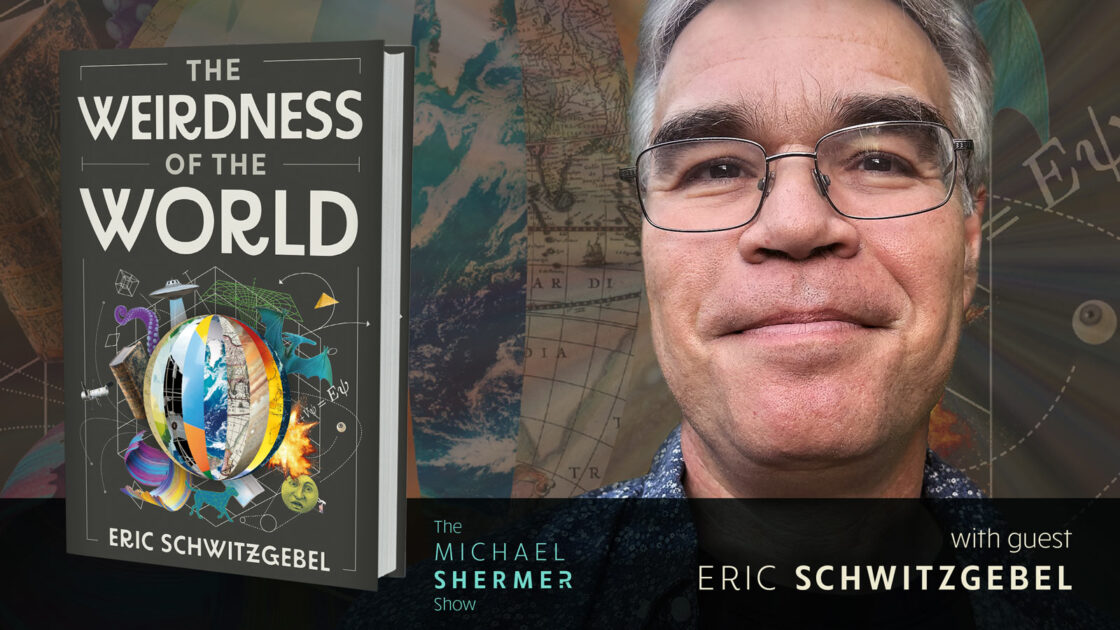
Shermer and Schwitzgebel discuss: bizarreness • skepticism • consciousness • virtual reality • AI, Turing Test, sentience, existential threat • idealism, materialism • ultimate nature of reality • solipsism • evidence for the existence of an external world • computer simulations hypothesis • mind-body problem • truths: external, internal, objective, subjective • mind-altering drugs • entropy • causality • infinity • immortality • multiverses • why there is something rather than nothing.
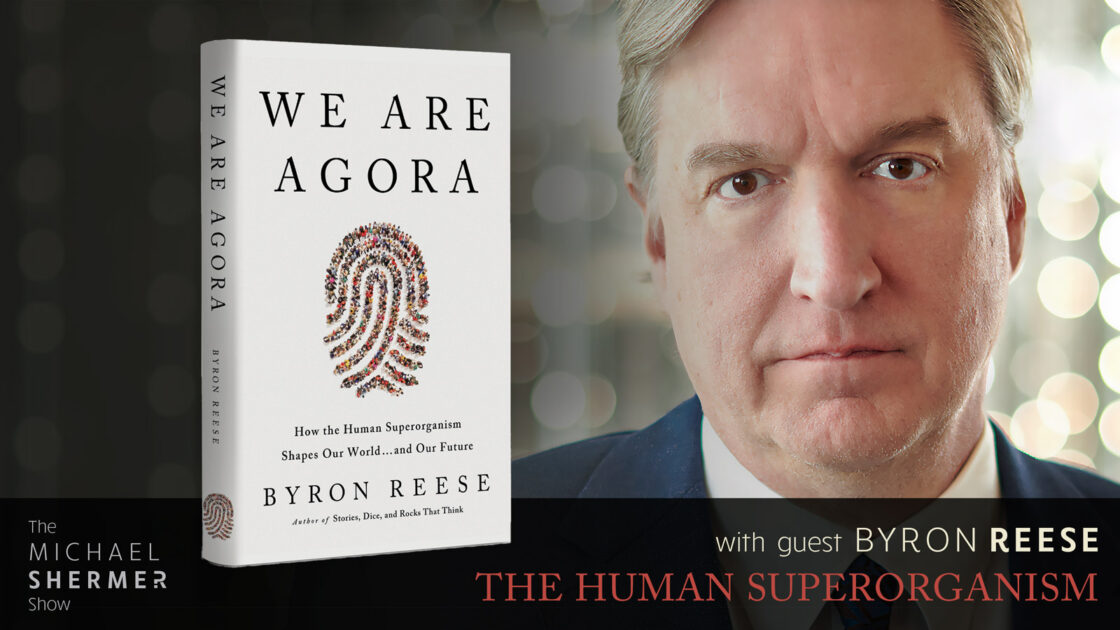
Shermer and Reese discuss: • organisms and superorganisms • origins of life • the self • emergence • consciousness • Is the Internet a superorganism? • Will AI create a superorganism? • Could AI become sentient or conscious? • the hard problem of consciousness • cities as superorganisms • planetary superorganisms • Are we living in a simulation? • Why are we here?
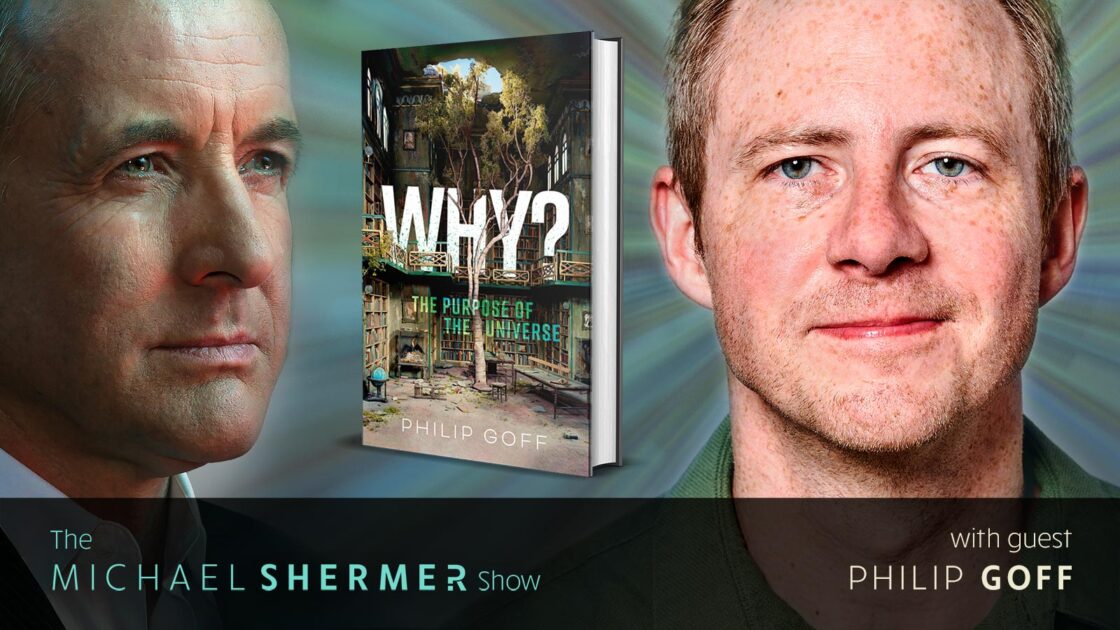
Shermer and Goff discuss: • living in a computer simulation • the universe itself as a conscious mind • cosmic purpose • fine-tuning • free will • consciousness (the ground of all being?) • morality and the Is-Ought Fallacy • What is my purpose in life? • religious vs. secular answers to the purpose question • awe and how to be spiritual but not religious.
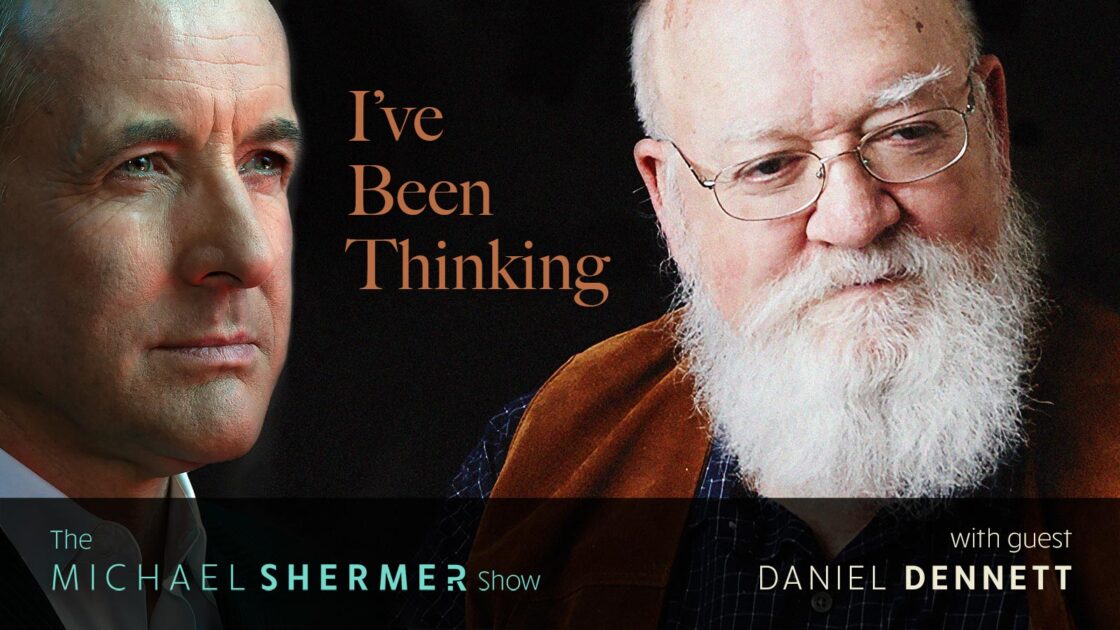
Preeminent philosopher and cognitive scientist, Daniel Dennett has spent his career considering the thorniest, most fundamental mysteries of the mind. Do we have free will? What is consciousness and how did it come about? What distinguishes human minds from the minds of animals? Dennett’s answers have profoundly shaped our age of philosophical thought. In his autobiographical I’ve Been Thinking, he reflects on his amazing career and lifelong scientific fascinations.
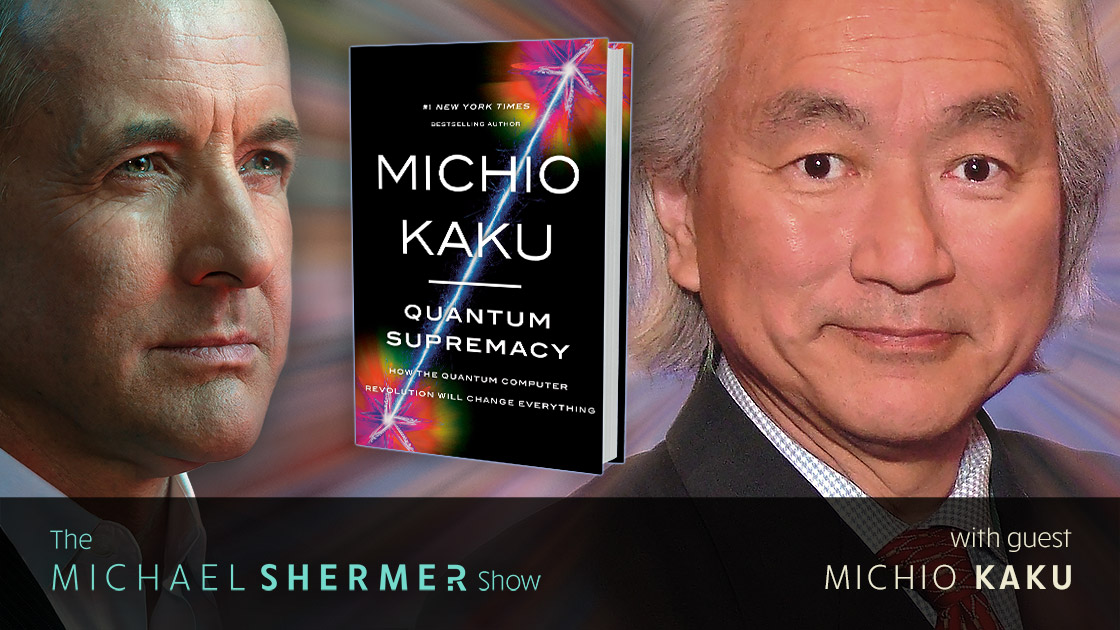
Shermer and Kaku discuss: AI, GPT, sentience/consciousness, the end of humanity • decoherence • Uncertainty Principle • multiverse, parallel universes, and Many Worlds hypothesis • Einstein • the evolution of the computer • the origin of life • climate change solutions • feeding 10 billion people • gene editing • curing cancer • immortality • simulating the universe • UAPs and UFOs • chaos theory and indeterminism • Are we living in a simulation? • Is there a God? •…
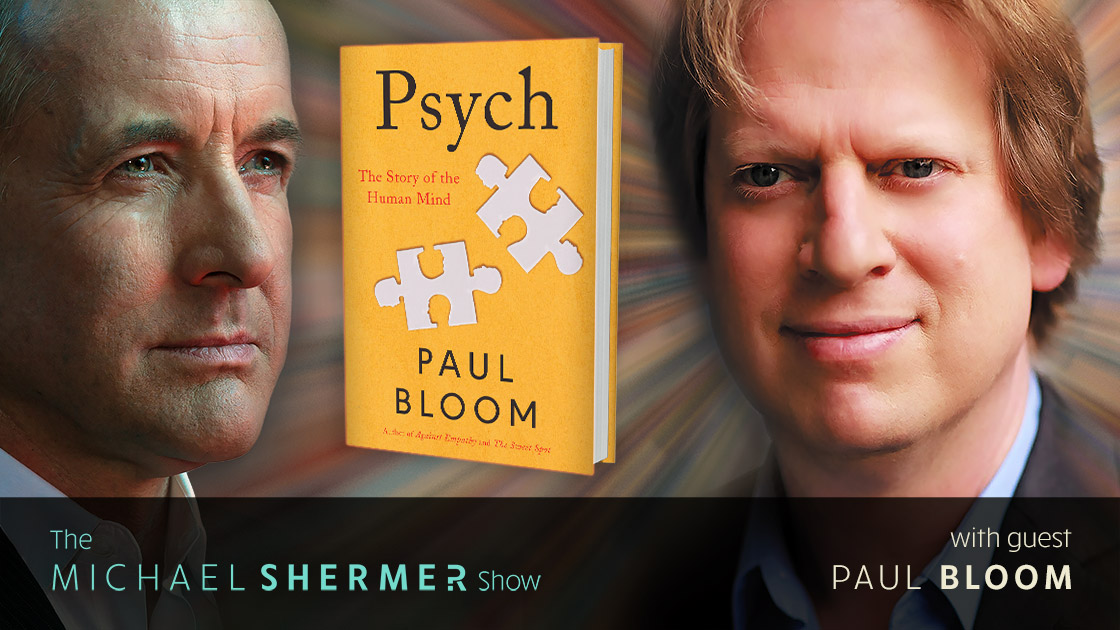
How does the brain — a three-pound gelatinous mass — give rise to intelligence and conscious experience? Was Freud right that we are all plagued by forbidden sexual desires? What is the function of emotions such as disgust, gratitude, and shame? Renowned psychologist Paul Bloom answers these questions and many more in this conversation based on his riveting new book about the science of the mind: Psych.
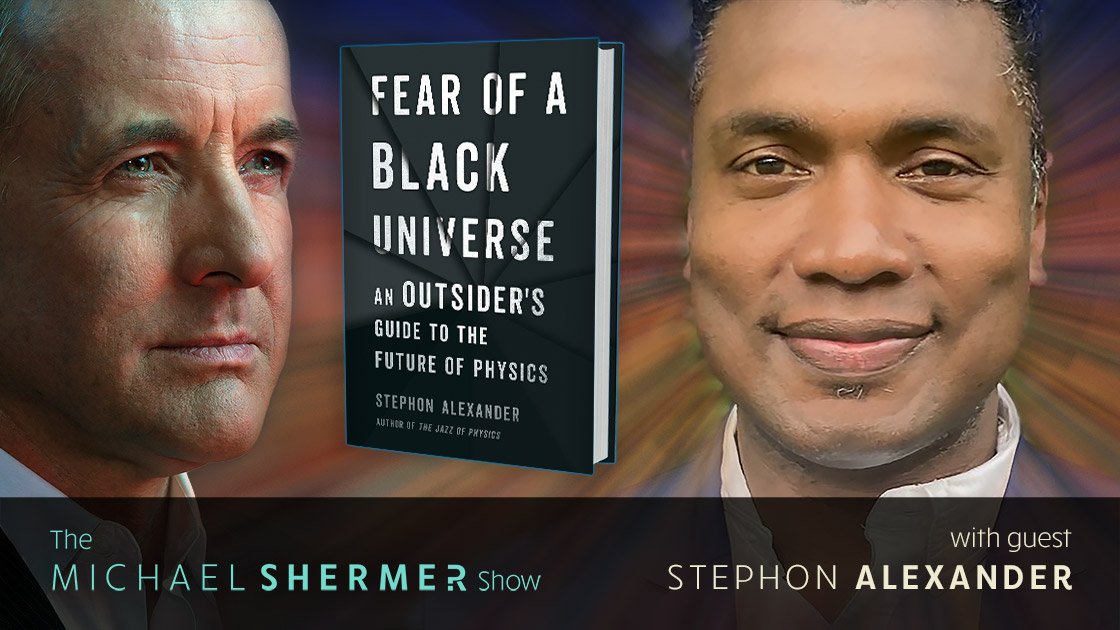
Shermer and Alexander discuss: his journey from Trinidad to the Bronx to professor of physics • what it’s like being Black in a mostly White and Asian field of science • systemic racism and misogyny • how to be an outsider inside a science • how to tell the difference between revolutionary and worthless new ideas • how do laypeople understand whether something is good science or not? • the double-slit experiment • superposition • connections between quantum physics and…
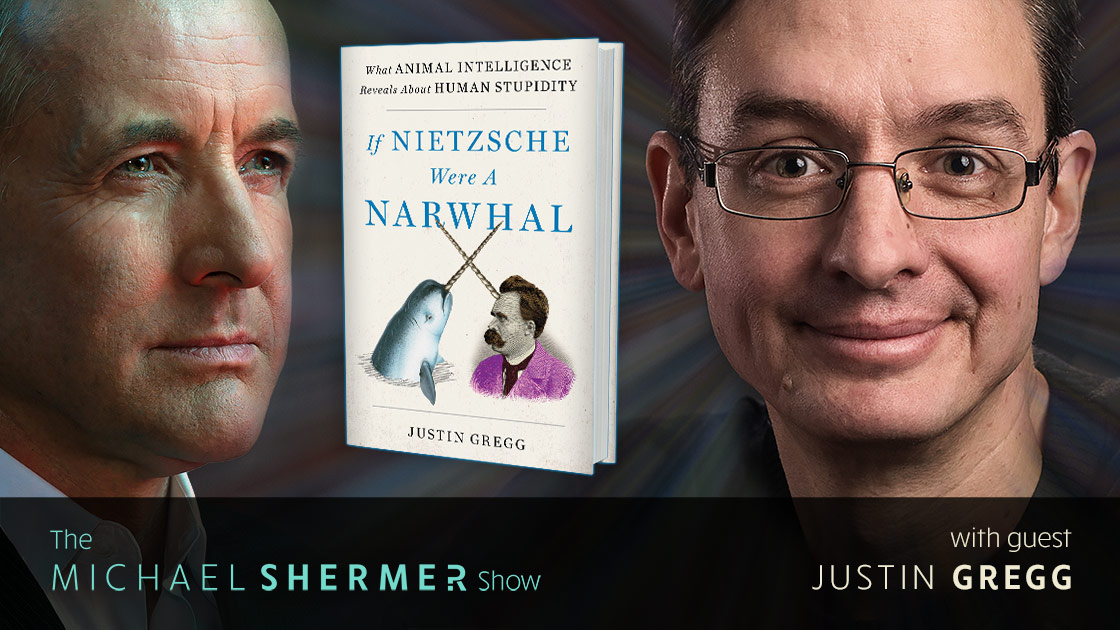
Shermer and Gregg discuss: • intelligence • stupidity • dolphins • artificial intelligence • language • rationality • moral systems • comparative thanatology • “causal inference” vs. “learned associations” • humans as “why specialists” • death awareness • why narwhals do not commit genocide • “prognostic myopia” • our “shortsighted farsightedness” as “an extinction-level threat to humanity” • consciousness and sophisticated consciousness: animals and humans • free will • determinism • pleasure vs. happiness vs. purposefulness.
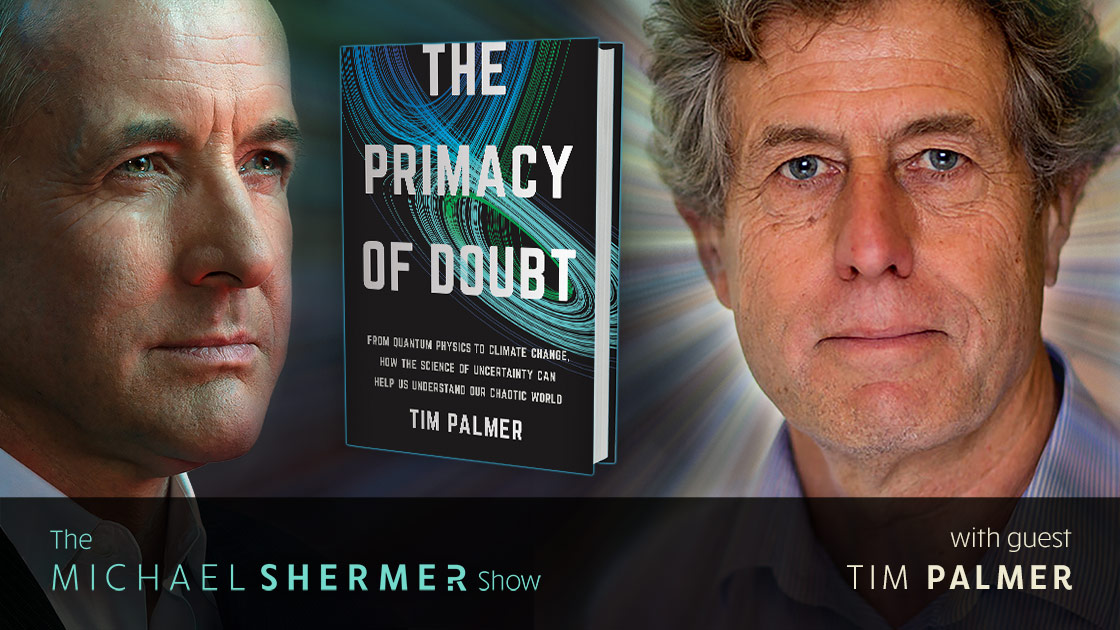
Shermer and Palmer discuss: doubt and skepticism • when doubt slides into denial • uncertainty as a measurement problem vs. inherent in natural systems • contingency and necessity, randomness and law • the butterfly effect • the geometry of chaos • quantum uncertainty • weather forecasting • climate change • pandemics • economic recessions • human decision making and creativity • free will • consciousness, and God.
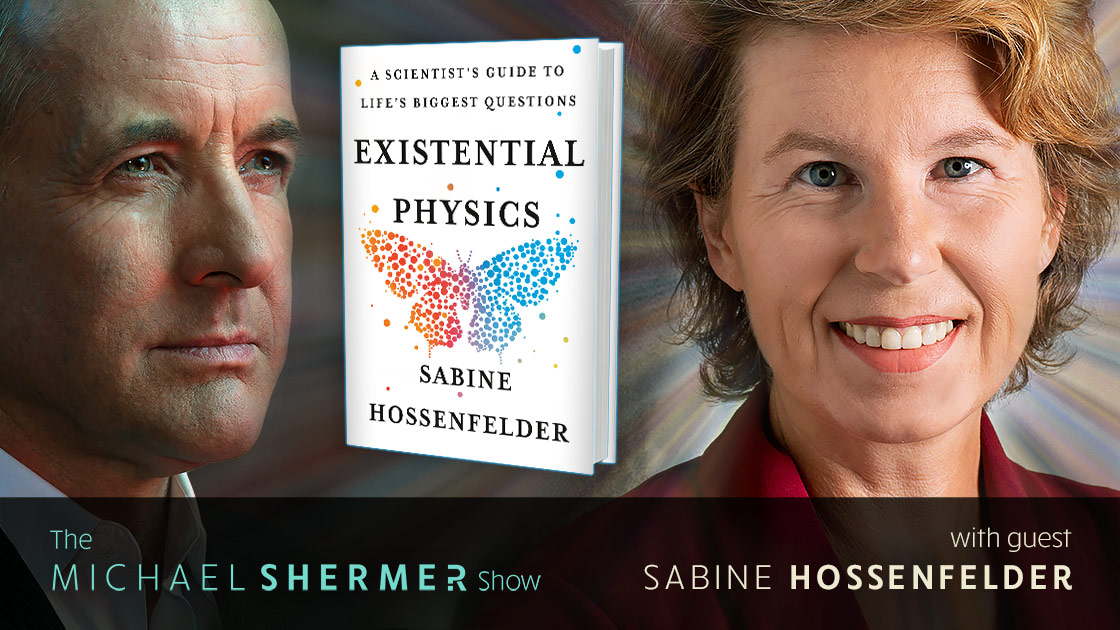
What is time? Does the past still exist? How did the universe begin and how will it end? Do particles think? Was the universe made for us? Why doesn’t anyone ever get younger? Has physics ruled out free will? Will we ever have a theory of everything? To examine these ideas, Shermer speaks with Sabine Hossenfelder, a research fellow at the Frankfurt Institute for Advanced Studies, Germany. She has published more than eighty research articles about the foundations of physics,…
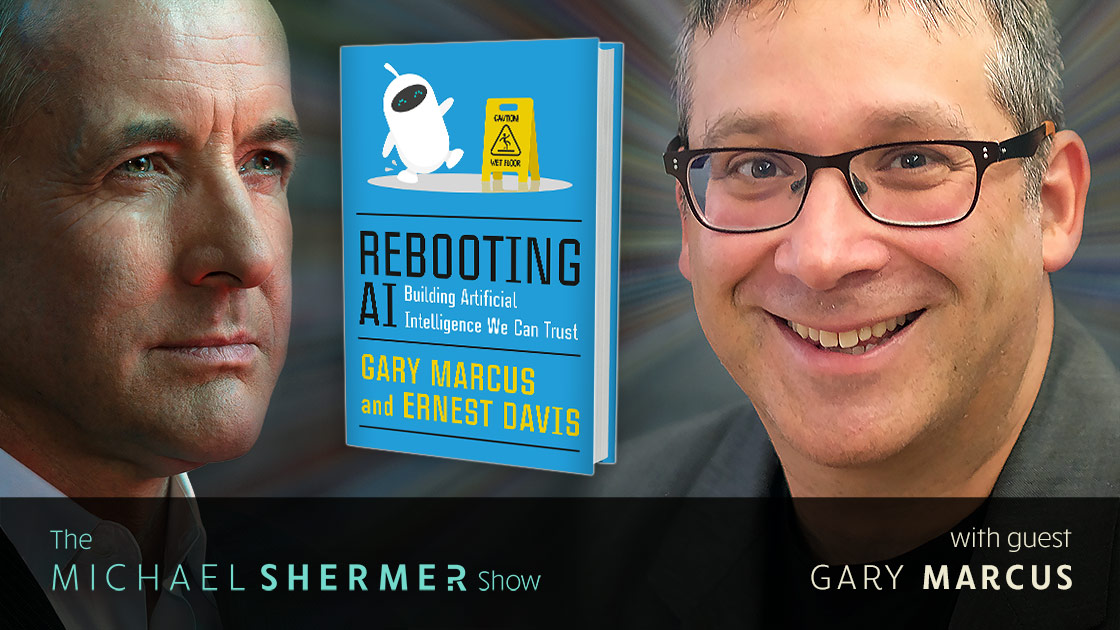
Shermer and Marcus discuss: why AI chatbot LaMDA is not sentient • “mind”, “thinking”, and “consciousness”, and how do molecules and matter give rise to such nonmaterial processes • the hard problem of consciousness • the self and other minds • How would we know if an AI system was sentient? • Can AI systems be conscious? • free will, determinism, compatibilism, and panpsychism • language • Can we have an inner life without language? • How rational or irrational…
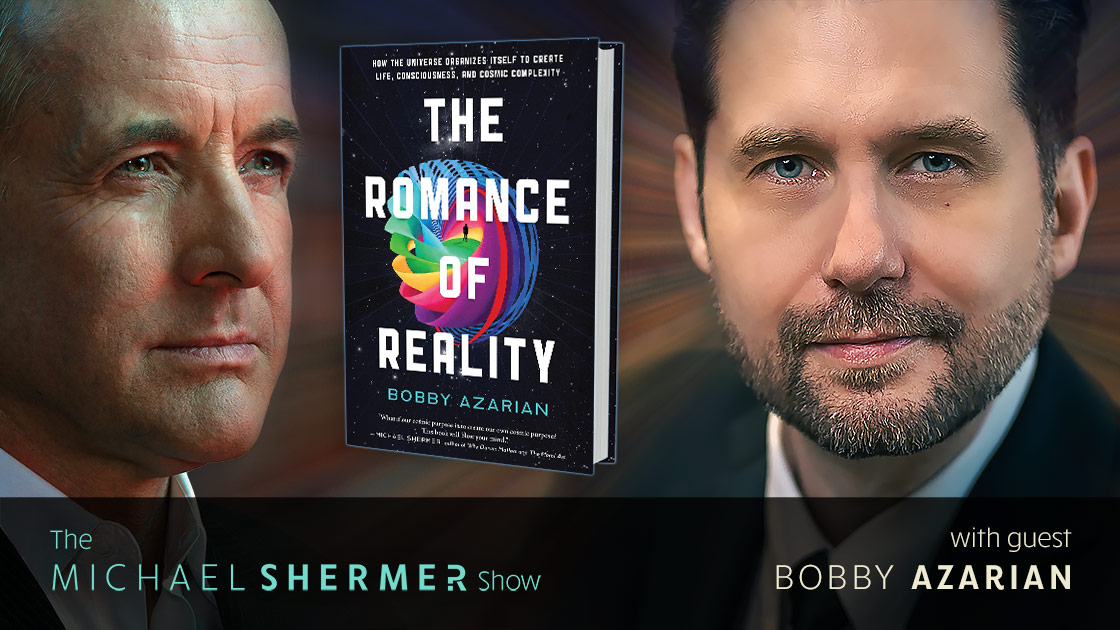
Shermer and Azarian discuss: laws of thermodynamics and directionality • how complexity formed after the Big Bang • laws of nature: discovered or created or both? • Stephen Jay Gould and contingency vs. necessitating laws of nature • convergent evolution and directionality in evolution • the left wall of simplicity • leading theories for the origin of life • complexity theory and emergence • consciousness, the self, and other minds • free will, determinism, compatibilism, panpsychism • Is there purpose…
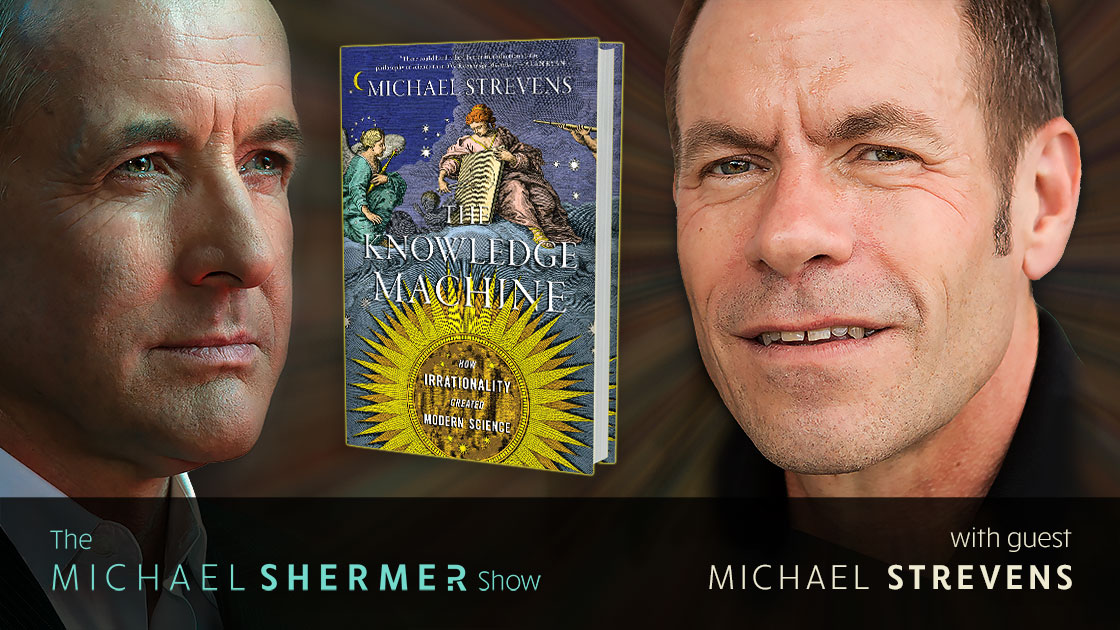
Shermer and Strevens discuss: irrationality and how it drives science • the knowledge machine • the replication crisis, what caused it, and what to do about it • verification vs. falsification • the iron rule of explanation • Bayesian reasoning vs. falsification • climate/evolution skeptics • model dependent realism • humanism • theistic arguments for: God, origin of life, morality, consciousness • known knowns, known unknowns, and unknown unknowns • how to evaluate media sources of science.
NEXT →




























